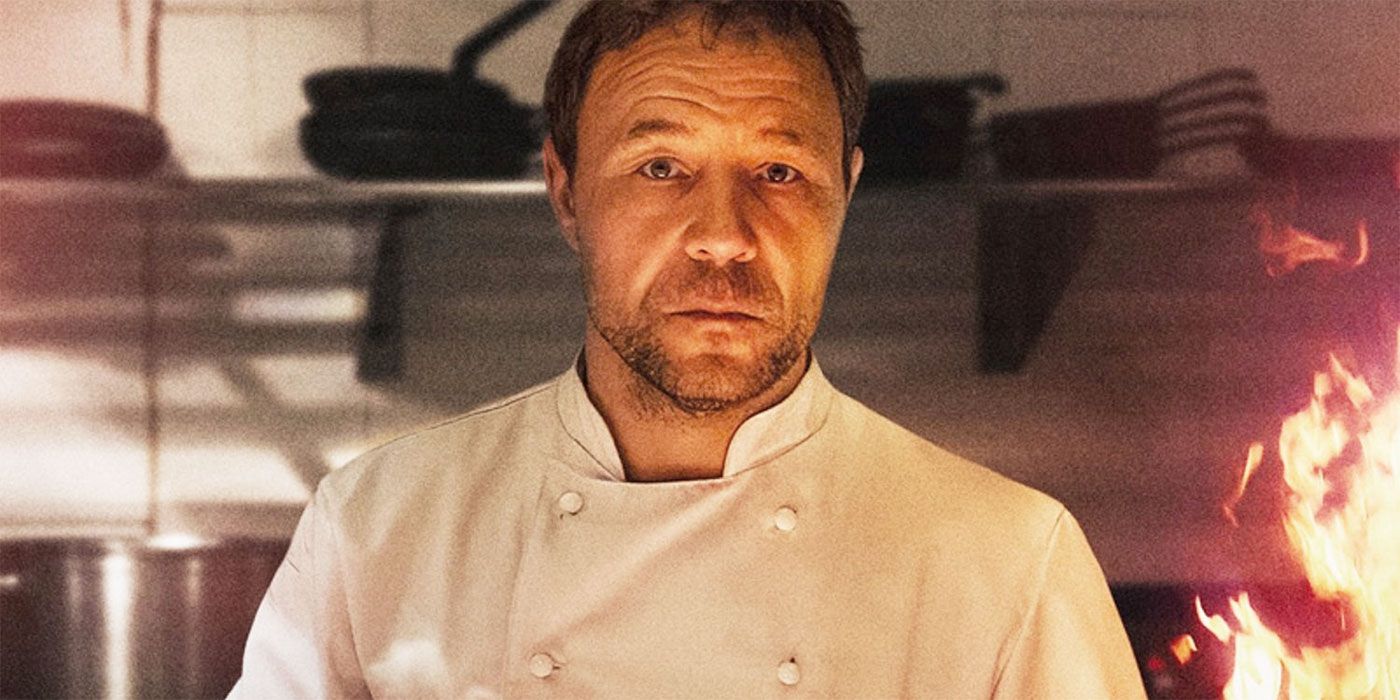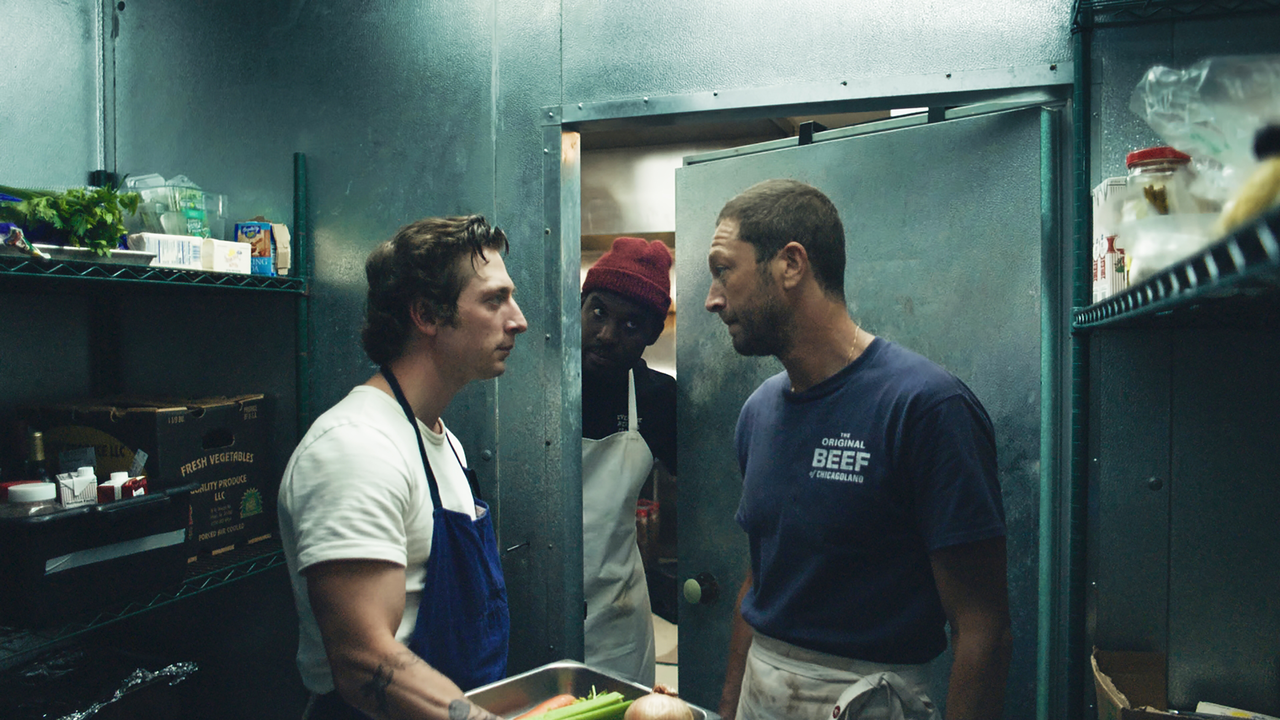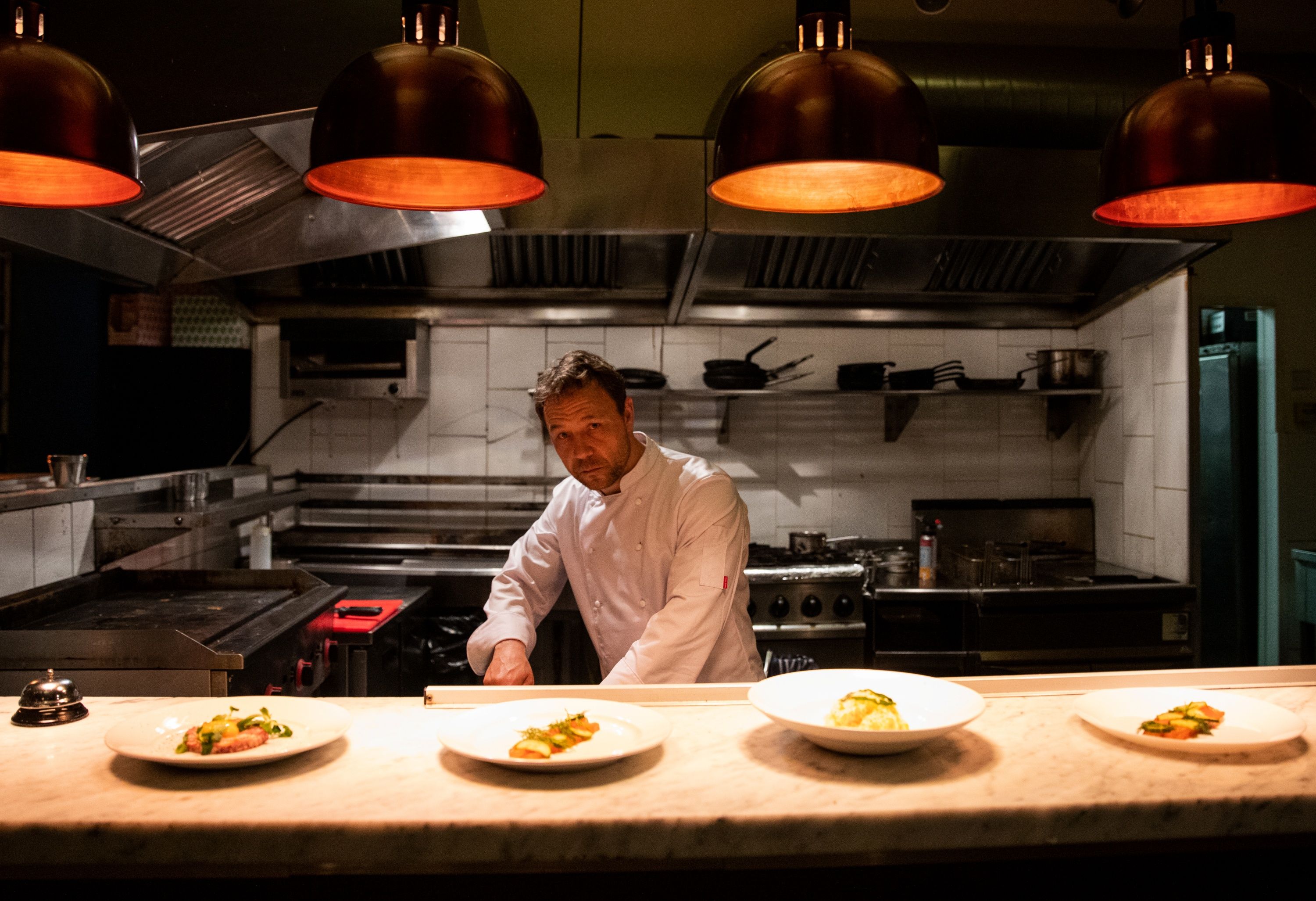Editor's Note: The following contains spoilers for Season 1 of The Bear.The anxiety-inducing workplace drama is over-saturated with jobs most can’t relate to. However, as this genre evolves, audiences are being exposed to more representative stories of everyday degraded and exploited workers through television and cinema. The working-class experience in the food service industry has historically been relegated to whatever The Food Network or your favorite chef's YouTube channel has to say. Thankfully, over the past year, there have been two educational, adrenaline-packed stories that embody a cutthroat restaurant and its overworked staff with The Bear and Boiling Point.
The precarious balancing act of creating art in a kitchen on an unforgiving deadline is only fully understood by those who have worked in the industry. FX and Hulu's new series The Bear fully embodies the experiences of a kitchen staff and allows its audience a peek into the depths of its claustrophobic, chaotic world. This show smartly follows a sort-of prodigy in the kitchen; the wide-eyed, manic Chef Carmen, played by Jeremy Allen White with an extremely internalized performance. Carmy comes home from a world of fine dining, but after his brother Michael (Jon Bernthal) dies of suicide and leaves him a debt-ridden restaurant, appropriately named: The Original Beef of Chicagoland. This beloved local establishment symbolizes the contradictions of romanticizing nostalgia with its 80s movie posters, coin-filled arcade machines, and a brutalized kitchen with its worn-out staff who wish for the good ole days to return. There is an appreciation for the past imbued in the faithful kitchen and its staff, but there is also a toxic stench of a troubled past that haunts the crew, not allowing them to move on. As the story develops, Carmy’s experience as the chef of this complicated restaurant becomes secondary to the distinct personalities of the kitchen staff, as they are the center of a character study disguised as a workplace drama.
A determined Carmy soon realizes that he can only improve this restaurant - therefore mourn his deceased brother - if he trusts his team. Together they can collectively deal with the everyday sacrifices of a struggling small business kitchen, from onions to dreams. Beginning with the ambitious and prideful sous-chef Sydney (Ayo Edebiri), who becomes a beacon of hope and inspiration to a doubtful and distressed kitchen staff. The vital veterans of the kitchen who look to the young perfectionists of Carmy and Sydney include: an inexperienced pastry chef Marcus (Lionel Boyce) who gains a curiosity in expanding his skill; Somalian immigrant Ebra (Edwin Lee Gibson) who is ready to tell his war stories to keep the troubles of the kitchen in perspective; the thankless and sometimes justifiably spiteful line cook Tina (Liza Colón-Zayas). The staff is staff rounded out by a possible former Chicago Cubs player and also previously homeless Gary (Corey Hendrix), the two dishwasher operators who realistically - but sadly - are rarely seen: Manny (Richard Esteras) and Angel (Jose M. Cervantes). Finally, there's the versatile Fak (Matty Matheson) who may or may not have a solution to your problem.
But no character proves why The Bear exists better than the erratic and anxious Richie (Ebon Moss-Bachrach). The seesaw effect between beauty and chaos in the restaurant and its kitchen is personified by Richie. His character development is the thesis of the show. His journey symbolizes grief that needs to be acknowledged in order to move on. Mikey’s ghost haunts Carmy and the crew, but it's Richie who's a stand-in for this tension, someone who can’t let go of the past because he fears he’ll be forgotten with it.
Whether it's his constant nagging of Carmy and Sydney wanting to change things in the restaurant or his feelings about keeping up with the older clientele of the restaurant in a vastly changing Chicago, he’s at the center of many of the restaurant's issues. Even though Richie self-reflects on many of these problems, it's ultimately his frenetic emotional cycle that disrupts the crew and their story more than any debt or deadline. Even up until the final act of the season, it's up to Richie to let the past go and let the future unfold, as he hands Carmy the final letter from his brother Mikey that ends up saving the restaurant and his “cousin”.
There is something hopeful about the deeper meanings of The Bear, less because of its kitchen and more because of the people in it and the atmosphere they create. However, the show does border on romanticizing and glorifying bonds in the kitchen and how inspired and collaborative the average staff is. While there are beautiful character studies in almost every episode, it's really Episode 7's 20-minute one-shot that fully captures an honest, explosive kitchen experience that can be found simultaneously in an Applebee's and a three-star Michelin restaurant on a busy Friday night. While the immersive experience in Episode 7 is hauntingly incredible, it lives in the shadow of the 2021 British film Boiling Point; a life-shattering, visceral 90-minute one-shot that embodies a more universal restaurant experience than anything in The Bear.
The paradox of enjoying anything in a capitalist economy is that one person’s satisfaction is another's despair. Your favorite restaurant and delicious dish might have been created by someone in their own personal hell. In the BIFA and BAFTA-nominated film Boiling Point, written and directed by Philip Barantini, Barantini's feature debut encapsulates this hell and delivers an excruciating film that illustrates everything wrong with how food industry workers are treated in a nightmare-inducing ride.
We follow a disheveled addict in Chef Andy (Stephen Graham), who, much like Carmy, internalizes all of his stresses. On the worst night of Andy's life, his right-hand partner Chef Carly (Vinette Robinson) tries to keep their restaurant alive as it's attacked by swarms of hungry people who aren’t just looking for a good meal. Robinson delivers one of the most impressive supporting performances in recent memory here. Boiling Point has it all: power-hungry and patronizing health inspectors, bigoted hyper-masculine patriarchs who want to be validated, faux social media influencers trying to gain the restaurant's support, food critics with ulterior motives, an incompetent manager hired because of nepotism, and even a celebrity chef who demands Andy pay him back £200,000 pounds.
The pressure of an overbooked restaurant on a Friday night before Christmas is an experience that could cost these workers their lives, and it is on full display. Like the staff, you aren’t given a second to breathe. What’s most impressive over the course of this 90-minute film is that this terrible experience is only a single night, and as you meet the restaurant staff it's clear that this night is supposed to encapsulate the worst side of the restaurant industry. While The Bear puts unpredictability mostly on the shoulders of characters like Richie, the unpredictability of the restaurant and its kitchen is personified by the entire staff in Boiling Point. Ultimately, the workers in The Bear and in Boiling Point are all suffering from plenty of bad nights you’ll never see on screen and tonight is nothing new, and that's why the two stories are so brilliant.
Where The Bear has succeeded in explaining the ways the food industry can exploit and degrade their workers (and might continue to do so if the series is renewed), Boiling Point accomplishes all of this in 90 minutes. The two stories represent the realities of being exploited in high-pressure, demanding jobs, and offer an honest look at a frequently glamourized industry.



